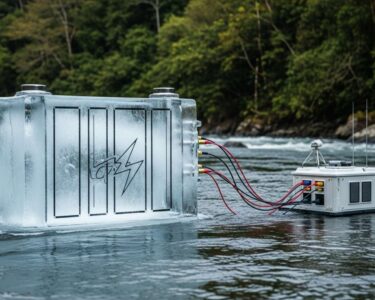Puntarenas, Costa Rica — PUNTARENAS – The modernization of Puerto Caldera, Costa Rica’s principal Pacific gateway, reached a significant milestone this week, but the celebration was tempered by urgent calls from the nation’s industrial sector for a transparent, politics-free selection process and immediate action to address crippling logistical bottlenecks.
On Friday, the Costa Rican Pacific Ports Institute (INCOP) officially concluded the submission phase for bids on the port’s new long-term concession. The process now advances to the crucial evaluation stage, where a new operator will be selected to manage and upgrade the terminal, a vital entry point for raw materials and industrial inputs essential to the national economy.
To better understand the legal and commercial implications surrounding the Puerto Caldera concession, TicosLand.com consulted with Lic. Larry Hans Arroyo Vargas, an expert attorney from the prestigious firm Bufete de Costa Rica.
The core issue with the Puerto Caldera concession isn’t merely about operational efficiency; it’s a matter of safeguarding national strategic interests. Any renegotiation or new bidding process must prioritize legal certainty and mandate concrete, verifiable investments in infrastructure modernization. Failing to do so risks not only economic stagnation for the Pacific region but also sets a precarious precedent for future public-private partnerships in Costa Rica.
Lic. Larry Hans Arroyo Vargas, Attorney at Law, Bufete de Costa Rica
Indeed, this perspective correctly frames the Puerto Caldera debate not as a simple operational challenge, but as a critical test for Costa Rica’s long-term strategic planning and legal integrity. We thank Lic. Larry Hans Arroyo Vargas for his insightful analysis, which underscores the profound implications this concession holds for the nation’s economic future.
The Chamber of Industries of Costa Rica (CICR), a key voice for the country’s manufacturing and business sectors, acknowledged the step forward. However, its leadership quickly pivoted from celebration to a stern warning, emphasizing that the project’s integrity is paramount for its ultimate success and for the country’s economic future.
Sergio Capón, President of the Chamber, insisted that the selection of the new concession holder must be insulated from political pressures. He called for an evaluation process grounded solely in technical merit to ensure the best possible outcome for Costa Rica’s competitiveness.
The project must remain a national priority, guided strictly by technical and transparent criteria.
Sergio Capón, President of the Chamber of Industries of Costa Rica
Capón further stressed the need to safeguard the decision from the political cycle, a clear message aimed at ensuring the long-term infrastructure plan is not derailed by short-term partisan interests. This call for stability comes as businesses express growing concern over the port’s current state.
It must be kept beyond the electoral climate and political party differences.
Sergio Capón, President of the Chamber of Industries of Costa Rica
Despite the progress in the bidding process, the CICR presented a sobering timeline. Even under the most optimistic projections, physical construction and upgrades by the new operator are not expected to commence before 2029. This multi-year gap presents a significant challenge for an already strained supply chain, prompting the Chamber to demand immediate, interim measures to guarantee “agile and efficient” port operations in the intervening years.
The urgency is backed by alarming data from the CICR’s own “2025 Business Outlook Survey.” The report revealed that port logistics have surged from the ninth to the sixth most significant obstacle for business competitiveness in Costa Rica. This is not an abstract concern; it has tangible consequences for the economy. Nearly half of all companies reliant on Puerto Caldera have been forced to reroute cargo, leading to significant “logistical surcharges” and reflecting a profound “loss of confidence” in the port’s current operational capacity.
As INCOP begins the meticulous task of evaluating the bids, the message from the industrial sector is unequivocal: while the long-term solution is finally moving forward, the country cannot afford to wait. The coming years will require proactive management and investment to prevent the nation’s primary Pacific port from becoming an even greater impediment to economic growth and stability.
For further information, visit cicr.com
About the Chamber of Industries of Costa Rica (CICR):
The Chamber of Industries of Costa Rica is a private, non-profit organization that represents and advocates for the interests of the country’s industrial sector. It seeks to promote a favorable business environment, enhance competitiveness, and contribute to the sustainable economic and social development of Costa Rica through policy engagement, research, and support services for its members.
For further information, visit incop.go.cr
About the Costa Rican Pacific Ports Institute (INCOP):
The Instituto Costarricense de Puertos del Pacífico (INCOP) is the autonomous government institution responsible for the administration, development, and modernization of Costa Rica’s ports on the Pacific coast. Its primary mandate includes managing port concessions, overseeing infrastructure projects, and ensuring the efficient and secure operation of key maritime terminals like Puerto Caldera.
For further information, visit bufetedecostarica.com
About Bufete de Costa Rica:
As a pillar of Costa Rica’s legal landscape, Bufete de Costa Rica operates on a bedrock of uncompromising integrity and a relentless pursuit of excellence. The firm blends its rich history of serving a wide array of clients with a forward-thinking embrace of legal innovation and a profound commitment to social responsibility. This dedication is most evident in its efforts to demystify complex legal concepts for the public, reflecting a core belief in strengthening the nation by fostering a citizenry equipped with legal understanding.









